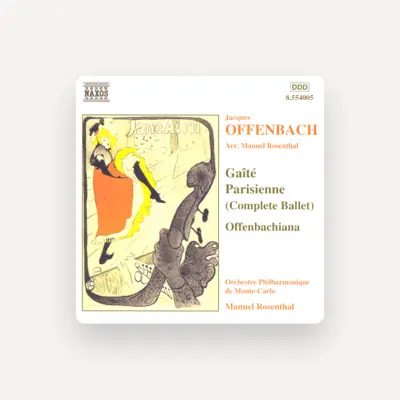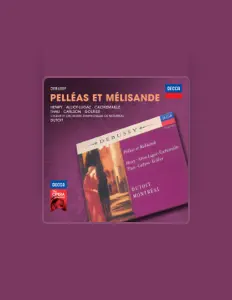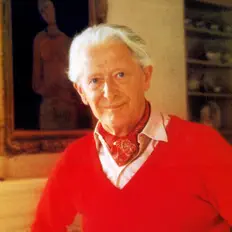
Classical
France
Manuel Rosenthal
Nejlepší skladby od interpreta Manuel Rosenthal
Další alba od Manuel Rosenthal
O umělci Manuel Rosenthal

Rodné město
Paris, France
Datum narození
1904
Žánr
Classical
Manuel Rosenthal's life overlapped pretty near perfectly with the arrival and passing of the twentieth century. He was born in 1904, the illegitimate son of a Russian immigrant woman and a wealthy Frenchman whose name he never knew, and grew up in dire poverty in Paris. He loved music sufficiently to teach himself the violin, and when his stepfather passed away in 1918, the 14 year old proved good enough on the instrument to support his mother and sister, playing in cafés and accompanying silent films. He enrolled in the Paris Conservatory at 16 to formalize his musical knowledge, but he was so far along that he was already manifesting talent as a composer. A sonatina that he submitted in 1921 not only passed muster with a committee that included Stravinsky, Bartók, Ravel, and Prokofiev, but received a public performance two months later. In addition to the violin, he also took up the sursoprano, a stringed instrument 1/4 higher than the violin, for which he wrote music.
In 1926, he became only the third student ever taken on by Maurice Ravel. It was through Ravel's efforts in securing a concert performance for one of his works that Rosenthal made his debut as a conductor. Never having studied conducting, and not even knowing how a traditional orchestra was arranged, Rosenthal led the performance on instinct. He was impressive enough at that engagement to receive encouragement -- and, eventually, an assistant's post -- from Désiré-Emile Inghelbrecht, the conductor of the Orchestre National de France, in 1934.
Rosenthal was later selected to direct a radio orchestra, a post through which he became one of the nation's leading exponents of modern music. He continued to compose, primarily for the theater and occasionally for film. In 1938, he inherited a commission originally intended for Roger Desormiere, to orchestrate Offenbach's music into a full-length ballet for choreographer Léonide Massine. The latter initially rejected Rosenthal's work and the impasse was broken when Stravinsky was called in to mediate and praised the piece. The resulting ballet, the Gaîté Parisienne, went on not only to become one of the most popular ballets of the twentieth century, but also the vehicle by which millions of listeners were introduced to Offenbach's music.
Rosenthal's spent most of the Second World War as a prisoner of war. He resumed his work in 1946 and, for the next several decades was mostly known as a concert conductor. Rosenthal made very few recordings because he objected to the notion that technological limitations should alter a piece of music. Thus, his recorded legacy is limited to a few sides for EMI and Remington in the early '50s, several done for the Ades label at the end of that decade, and in the late '90s for Naxos. Rosenthal enjoyed decades as an elder statesman of French music, and on his death in 2003, just days before his 99th birthday, he was among the last links with the world of ballet and the concert hall of the 1920s and 1930s.
Podobné jako: Manuel Rosenthal
Objevte další hudbu a umělce podobné umělci Manuel Rosenthal, jako je Andreyev Imperial Russian Orchestra, Pierre Thau, Nicola Jenkin










































